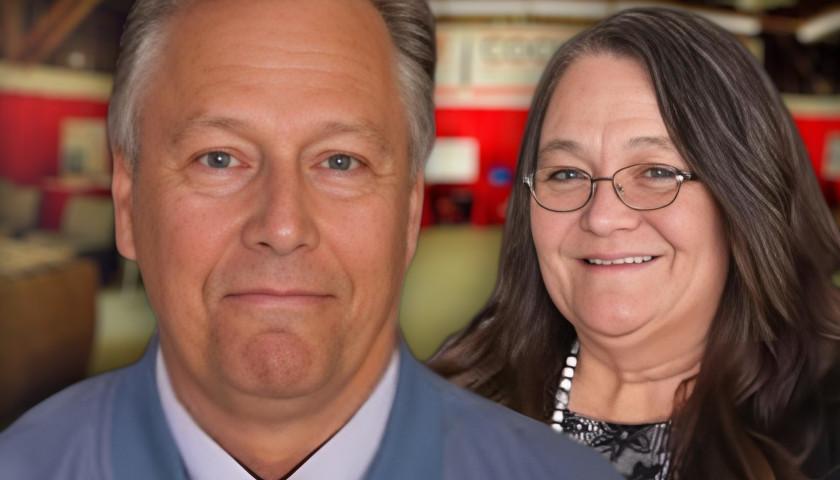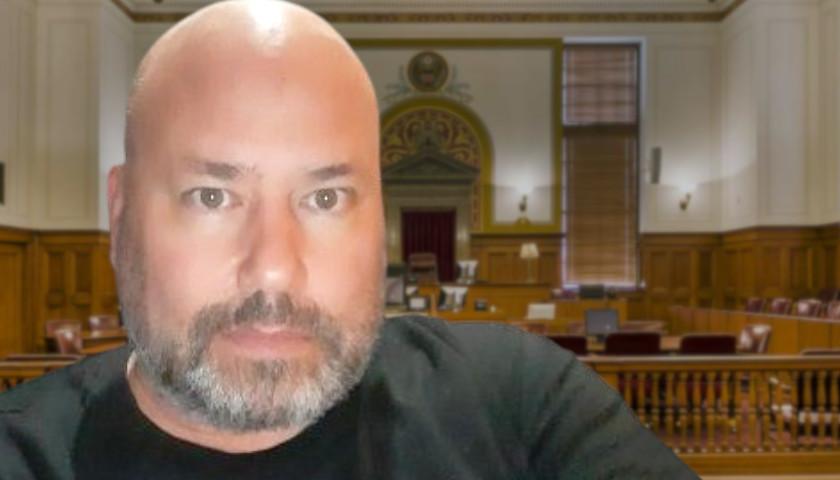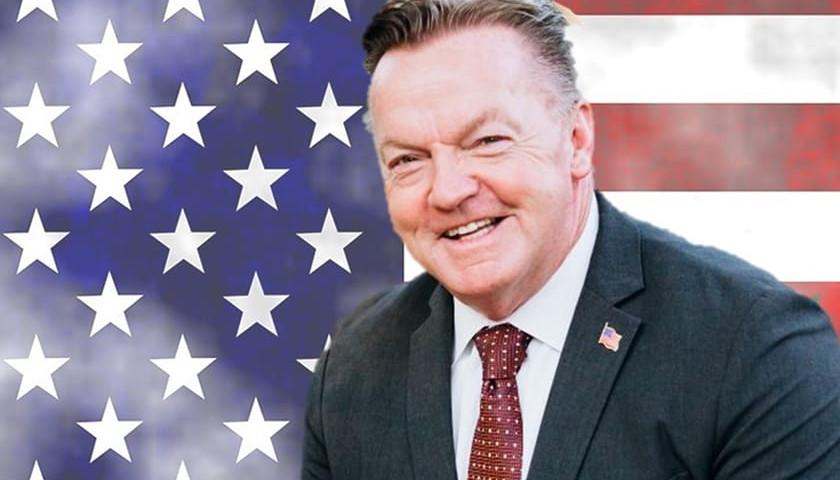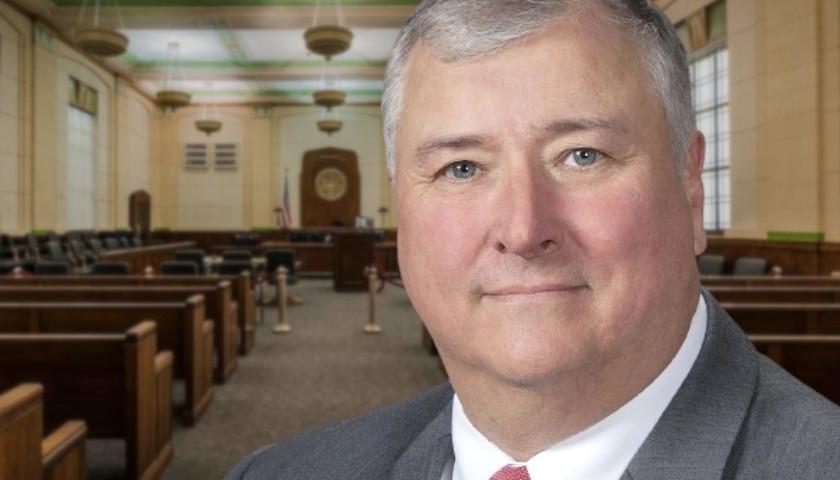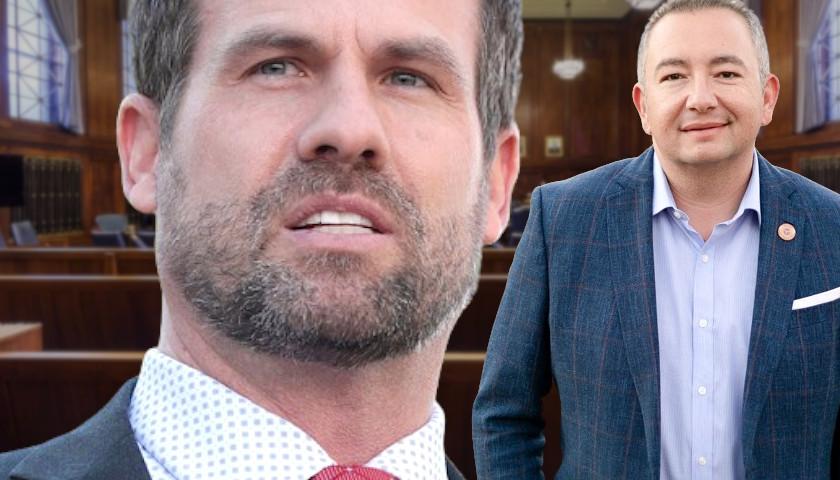Cochise County Supervisors Tom Crosby and Peggy Judd (pictured above) are fighting back against Attorney General Kris Mayes’ prosecution of them for voting to delay certification of the 2022 election by three days. The pair filed motions last week requesting that the case be dismissed and challenging the grand jury’s finding of probable cause against them.
In Crosby’s Motion to Dismiss, which Judd joined later, Crosby’s attorney Dennis Wilenchik said, “The criminal statute involved is vague and ambiguous and overbroad, and unconstitutional as applied here to a member of a Board of Supervisors of a County voting in his official capacity. The case was brought purely for political purposes by the Attorney General and is an egregious abuse of her powers.”
Crosby’s Motion for a New Finding of Probable Cause and to Remand stated, “[This case] involves the attempted criminal prosecution of a sitting member of the Board of Supervisors of Cochise County for voting in his official capacity. In no way was there any criminal act committed in doing so. The prosecution is unprecedented and an abuse of power of the Attorney General’s position of trust for purely partisan political purposes.”
Judd’s Motion to Remand to Grand Jury for New Determination of Probable Cause, filed by her attorney Kurt Altman, stated, “Remand is warranted in this matter because the state failed to present exculpatory evidence to the Grand Jury, wrongfully instructed the Grand Jury on the Fifth Amendment right against self-incrimination, and presented misleading and inappropriate opinion and speculation evidence, all of which was relied upon by the Grand Jury to return a True Bill.”
In his Motion to Dismiss, Crosby explained that the criminal law used to indict the supervisors, A.R.S. 16-1004(A), obstructing election officials, was not intended to cover the actions they took. That statute provides, “A person who at any election knowingly interferes in any manner with an officer of such election in the discharge of the officer’s duty, or who induces an officer of an election or officer whose duty it is to ascertain, announce or declare the result of such election, to violate or refuse to comply with the officer’s duty or any law regulating the election, is guilty of a class 5 felony.”
Crosby said, “[T]he statute was intended to prevent bribery or corruption in the election process, or to deter actual interference by citizens with election officers doing their jobs at the polls, and not to be applied to the vote of a County Supervisor where no actual interference with then Secretary of State (‘Secretary’) Hobbs’ certifying the 2022 election results occurred.”
He went on, “Defendant did not order any ‘canvass’ not be sent to Hobbs, nor did he ‘conspire’ to prevent the canvass being sent to Hobbes. His only role in this was to seek answers in a timely manner to certain questions raised by the tabulation of votes, before ‘certifying’ those results with his approval.”
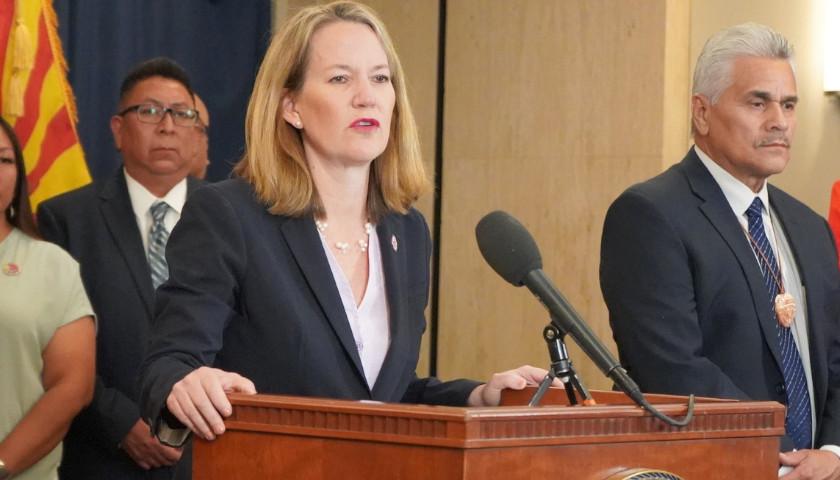
Instead, “Mayes has abused her statutory authority by attempting to stretch that arguably vague and ambiguous statute to the legitimate, post-election legislative activities of county supervisors.” He criticized the statute as “unconstitutionally vague and ambiguous or overbroad; and fails to give adequate notice of criminal activity as relates to these allegations.”
Crosby argued that he was protected by legislative immunity, since the courts have held voting falls under that protection. “The use of criminal threats and actual prosecution for such activities as voting by elected officials is beyond the pale, and brings back haunting memories of past abuses of power by prosecutorial officials.” He said his actions didn’t fit the statute since they occurred after the election, not “at” it. If the statute were to be interpreted to include his actions after the election, then the statute should be void for vagueness, since criminal statutes are required to be clear.
He said his actions didn’t interfere with the secretary of state’s duties, since then-Secretary of State Katie Hobbs was instructed by law to canvass the election on December 5, 2022, which she did, well after his attempt to postpone certification in mid-November.
Additionally, he pointed out that he was indicted in the wrong county, not in the county where his actions occurred. He said, “The accused has the constitutional right to ‘trial by an impartial jury of the county in which the offense is alleged to have been committed,’” citing the Arizona Constitution, Article II, Section 24. Mayes conducted the grand jury proceeding in Maricopa County, not Cochise County.
In their motions requesting new consideration by the grand jury, the pair said prosecutors failed to explain to the jurors that the standard to indict required showing them evidence regarding whether they had the intent to conspire. Next, they argued that prosecutors illegally showed the jurors privileged information, since case law states that evidence of legislative acts, such as voting, may not be used against any legislator in a judicial proceeding.
Their motions asserted that Cochise County Attorney Brian McIntyre “violated his ethical obligations to the Board and its members as a client” by revealing information related to client representation to the jurors. McIntyre, an election fraud denier who was convicted last year of a DUI after being arrested for a Super Extreme DUI, has repeatedly refused to represent the supervisors in election integrity actions, telling them that the county’s insurance won’t pick up the costs if they are sued.
Crosby’s motion said it was “shocking for the State to allow an obviously and extraordinarily biased witness, like McIntyre — who also admitted he was not an expert on election law — to pontificate to the jurors on election law and other legal issues as well.” Additionally, Crosby said it was improper for McIntyre to bring up to the jurors a separate, unrelated issue of the supervisors wishing to conduct a hand count. “[I]t is obvious from the transcript that the grand jury did, in fact, confuse the issue of the hand count and the certification of the election and may have reached its probable cause finding based on that misleading testimony.”
Although she has only been in office a little over a year, Mayes is aggressively going after election integrity proponents. She previously threatened Mohave County Supervisor Ron Gould with prosecution for suggesting that he would vote to conduct a hand count of the 2024 election. Gould sued her.
Mayes is investigating the alternate slate of presidential electors from Arizona’s 2020 election. In March 2023, Mayes sued the Cochise County Supervisors for delegating election duties to the Cochise County Recorder — something Maricopa County had done for years.
In December 2023, the Maricopa County Republican Committee unanimously passed a resolution calling for the impeachment of Mayes due to her politically motivated prosecutions and hostility to election integrity. The Arizona Freedom Caucus is leading efforts to stop the prosecutions.
An attempt to recall Crosby over his election integrity efforts last year failed. The Cochise County Record is compiling the pleadings for Crosby here and for Judd here.
– – –
Rachel Alexander is a reporter at The Arizona Sun Times and The Star News Network. Follow Rachel on Twitter / X. Email tips to [email protected].
Photos “Tom Crosby,” “Peggy Judd,” and “Cochise County Fair” by Cochise County.

